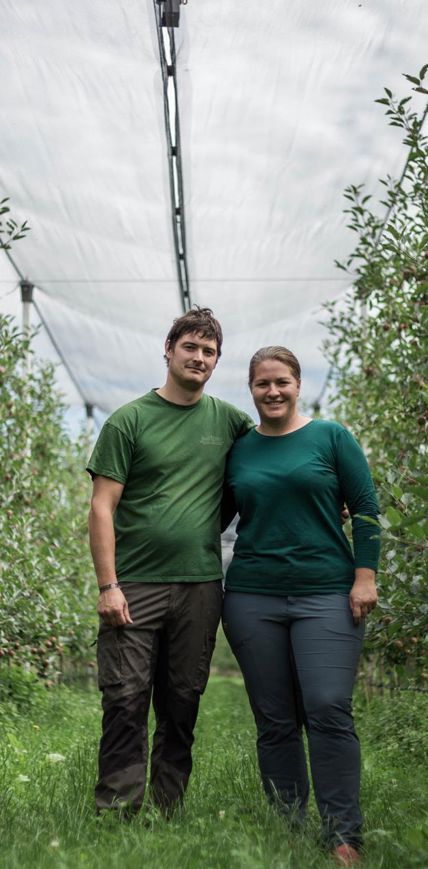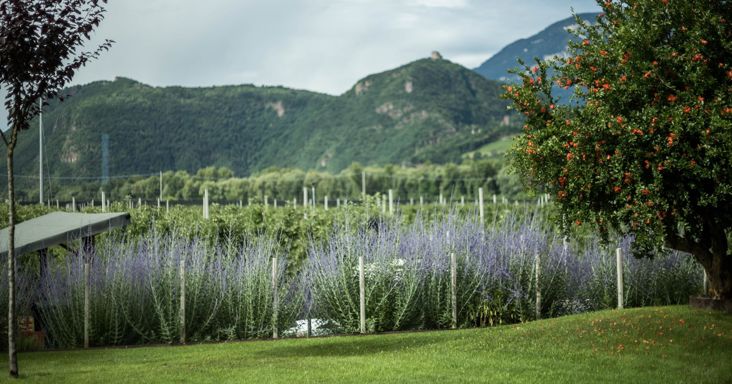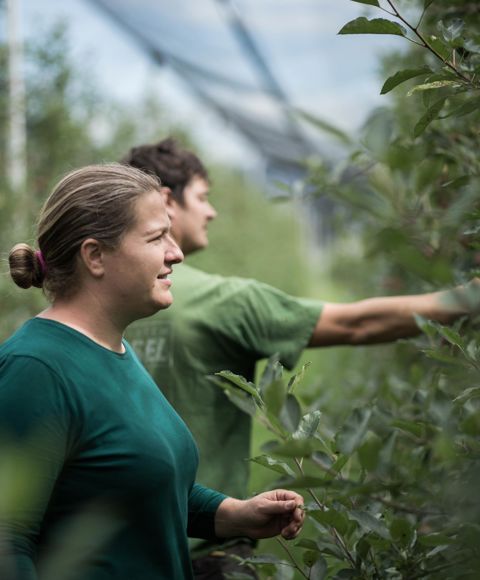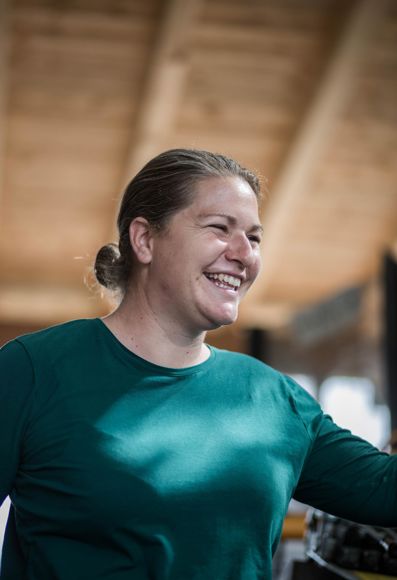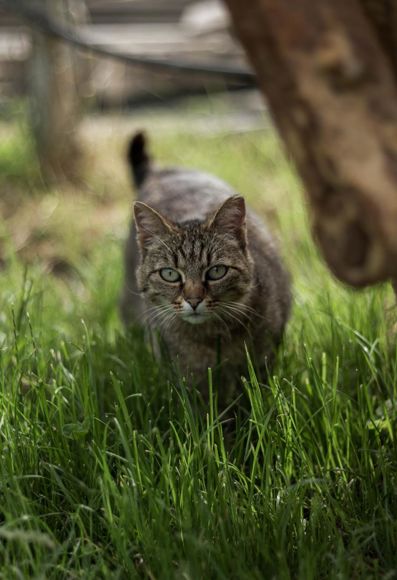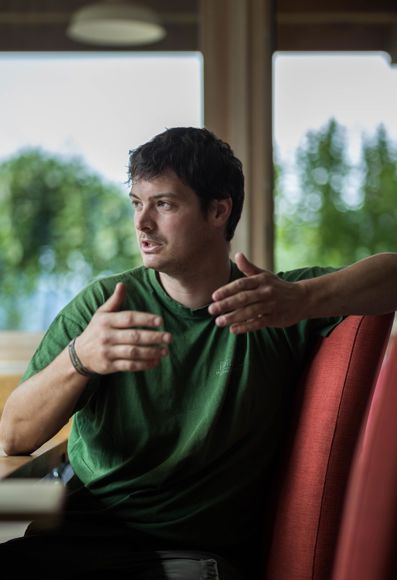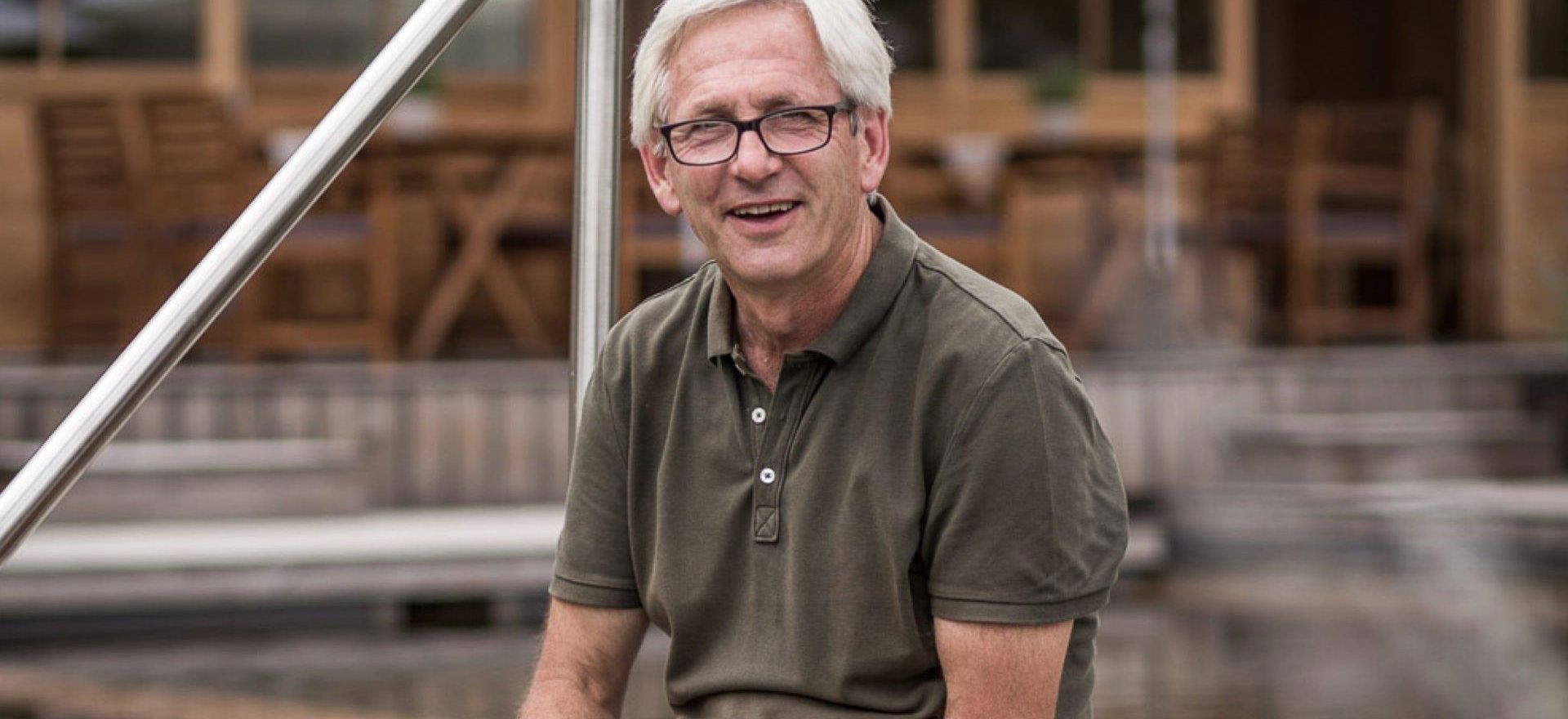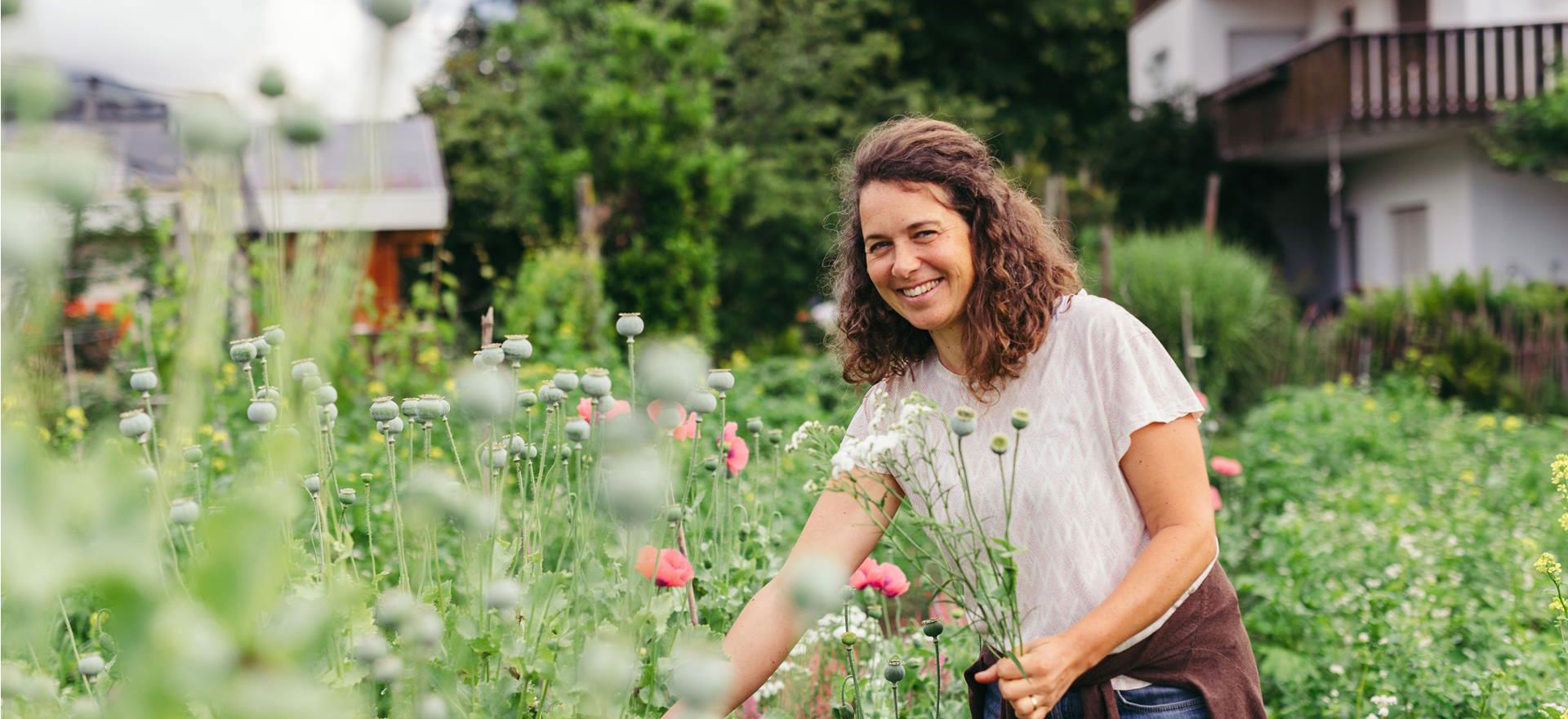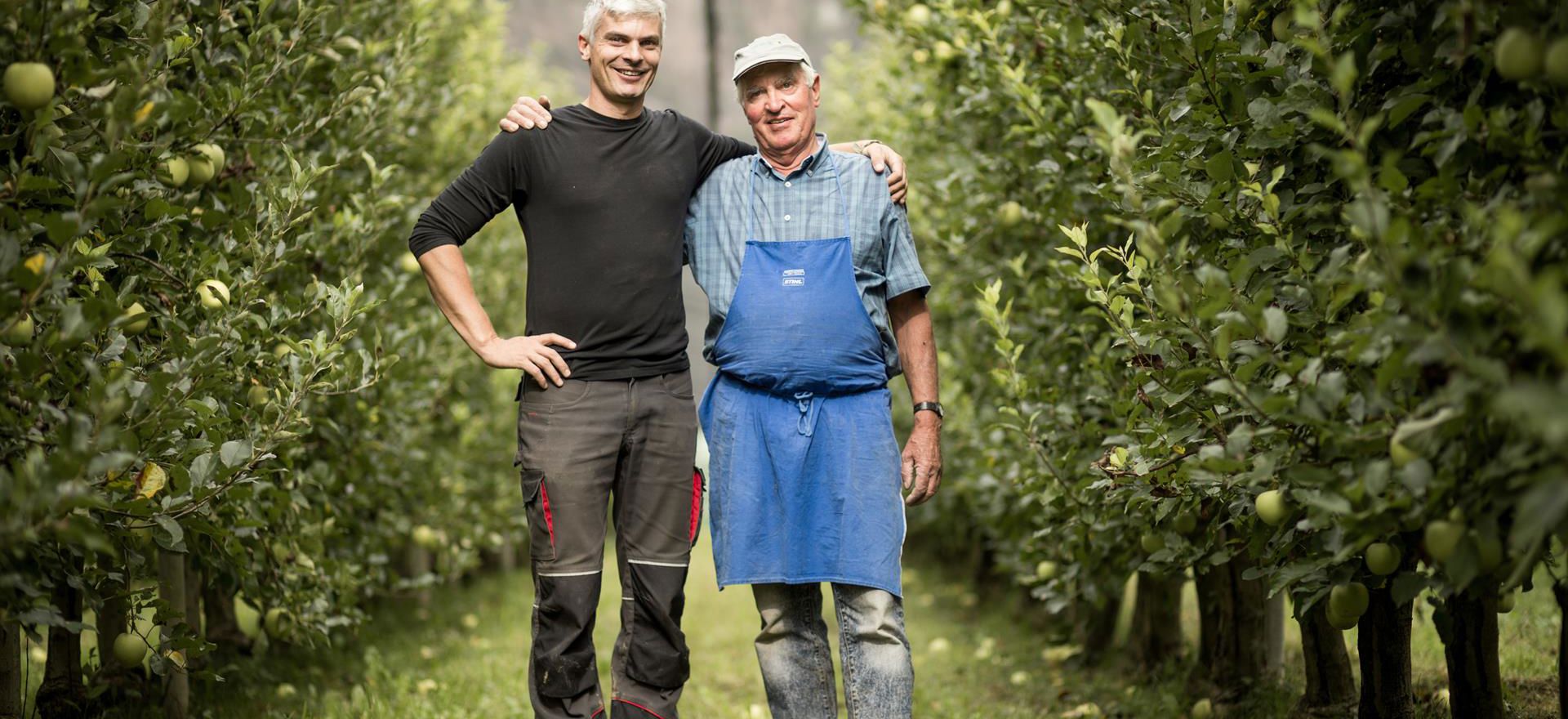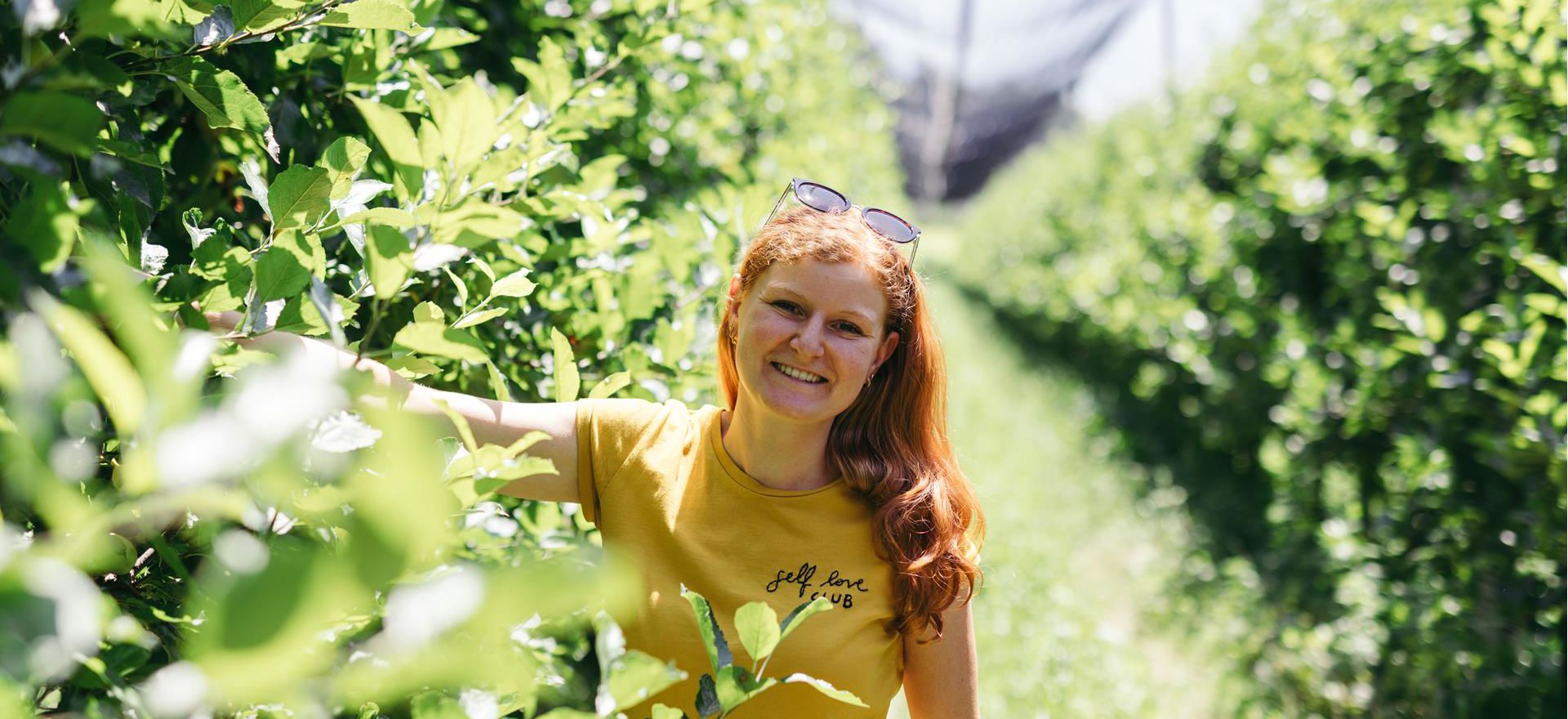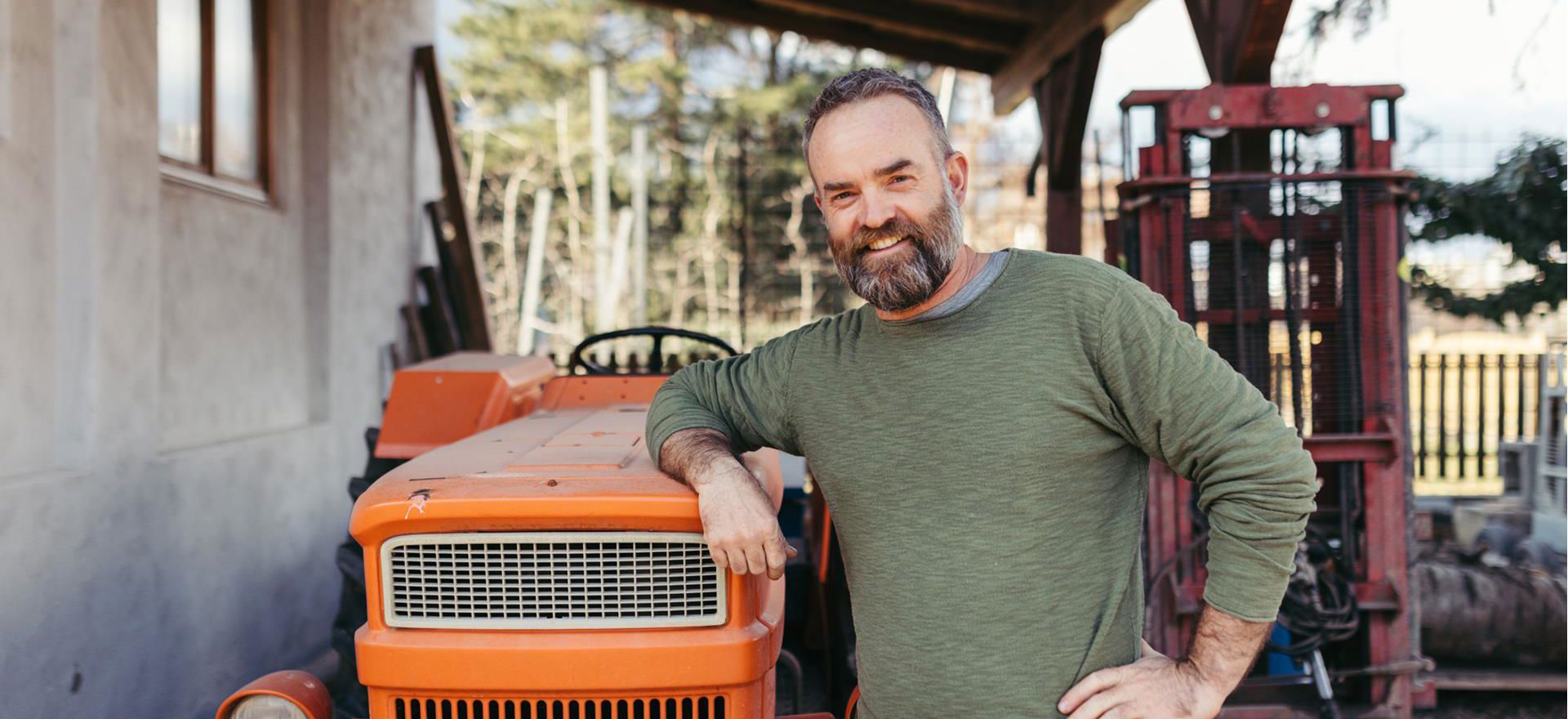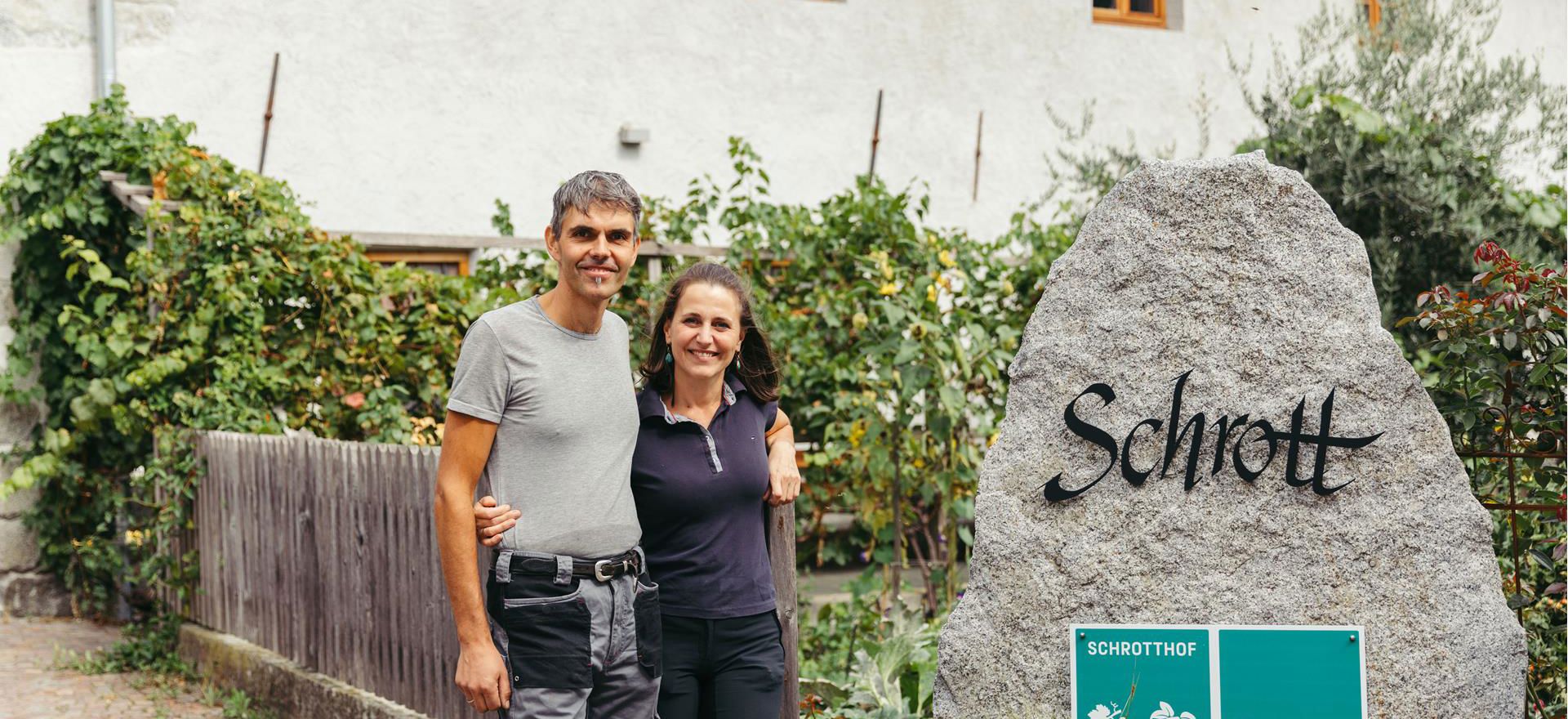Why do we do what we do?
A question for which everyone has their own answer. After high school, Evi volunteers at the local rescue service and takes up a permanent position there. A short time later, her life will change significantly.
Martin Frasnelli's grandfather, father, and mother worked in agriculture. For his mother it was clear early on that Martin would be active in the same field. He completed the agricultural secondary school and then went to the South Tyrolean fruit processor VOG Products.
Martin senses that he wants to do something different. He quits VOG Products and starts to work in the family's apple orchards and the orchards of other landowners. Evi is 19 when her father, who was also a farmer, dies. However, selling the orchards is not a question. Evi, her two sisters and her mother all agree. Evi quits her job and takes over the farm, together with her sister Stephanie. The division of work is clear: the mother takes care of bureaucratic matters, the two daughters drive the tractor. Later on, they split the farm and run it with their partners.
This is how Evi and Martin became farmers. At training courses and meetings, the two of them stand out. Mostly it’s experienced men and their sons that take part. Women are a rarity, a young couple a real exception. But open warm-hearted and determined as they are, Evi and Martin quickly settle into the farming community.
They painfully experience a lack of handouts for everything. On a balmy evening, hordes of May bugs fly onto the meadows of their farm Gutmannhof. The bugs lay their eggs in the sandy soil. Bug larvae eat the roots of the apple trees. Bark beetles penetrate the weakened trees and sap what life is left. Even experienced professional colleagues and the advisory organisations don’t know what to do.
Martin Frasnelli's grandfather, father, and mother worked in agriculture. For his mother it was clear early on that Martin would be active in the same field. He completed the agricultural secondary school and then went to the South Tyrolean fruit processor VOG Products.
Martin senses that he wants to do something different. He quits VOG Products and starts to work in the family's apple orchards and the orchards of other landowners. Evi is 19 when her father, who was also a farmer, dies. However, selling the orchards is not a question. Evi, her two sisters and her mother all agree. Evi quits her job and takes over the farm, together with her sister Stephanie. The division of work is clear: the mother takes care of bureaucratic matters, the two daughters drive the tractor. Later on, they split the farm and run it with their partners.
This is how Evi and Martin became farmers. At training courses and meetings, the two of them stand out. Mostly it’s experienced men and their sons that take part. Women are a rarity, a young couple a real exception. But open warm-hearted and determined as they are, Evi and Martin quickly settle into the farming community.
They painfully experience a lack of handouts for everything. On a balmy evening, hordes of May bugs fly onto the meadows of their farm Gutmannhof. The bugs lay their eggs in the sandy soil. Bug larvae eat the roots of the apple trees. Bark beetles penetrate the weakened trees and sap what life is left. Even experienced professional colleagues and the advisory organisations don’t know what to do.


